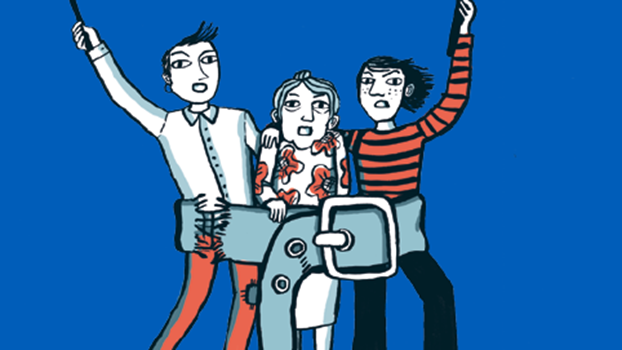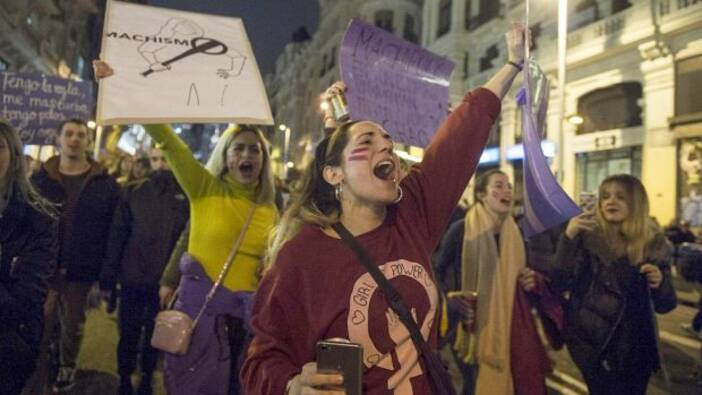
When we first started to look at various data, we found that both men and women in Croatia suffered grave consequences of the recent economic crisis. Only when we turned our eye to the devastation that happened during the 1990s and in the early 2000s did it became possible to see the different effects of cuts to social services and privatisation processes on women as a group. In a way, for Croatia the impact of austerity measures, since it declared its independence, can be best described as ‘death by a thousand cuts’. The process of transformation from socialism to capitalism floundered, principally, by significantly reducing labour rights, implementing failed pension reform, privatising healthcare. These first ‘reforms’, implemented in the 1990s and later on, on the advice of the World Bank and the International Monetary Fund, laid the groundwork for the complete devastation of the social state built in Yugoslavia.
This publication was financed by the German Federal Ministry for Economic Cooperation and Development and the German Federal Foreign Office. This publication or parts of it can be used by others for free as long as they provide a proper reference to the original publication. The content of this publication does not necessarily reflect the official opinion of the Rosa-Luxemburg-Stiftung. Responsibility for the information and views expressed therein lies with the authors.
Contents
- Introduction
- Women’s Position in the Labour Market and the new Labour Act
- Child Benefits and Allowances, Maternity and Parental Leave
- Pensions
- Women’s Reproductive Health
- Childcare and Care of the Elderly
- Family
- Violence against Women
- Financing of Women’s Shelters, Organisations and Institutions
- Especially Vulnerable Groups
- Final Word
- References
- Biographies
Author's biographical details
Marija Ćaćić (1986, Zagreb) works as a translator. Currently member of the Program Committee of Women’s Union School organized by BRID (OWID), she was also editor-in-chief of the magazine "Zarez" and "Slobodni Filozofski". She has translated, written on and edited special issues on reproductive rights, sex work and feminist theory.
Dora Levačić (1989, Zagreb) has received an MA degree in sociology at the Faculty of Humanities and Social Sciences in Zagreb. She has worked as an independent researcher for several NGOs and has written on the topics of economic gender inequality, feminist theory and youth unemployment.
